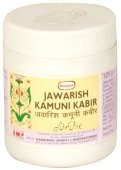Taj: 3 definitions
Introduction:
Taj means something in Hinduism, Sanskrit, Hindi, biology. If you want to know the exact meaning, history, etymology or English translation of this term then check out the descriptions on this page. Add your comment or reference to a book if you want to contribute to this summary article.
Biology (plants and animals)
Source: Google Books: CRC World Dictionary (Regional names)Taj in India is the name of a plant defined with Cinnamomum cassia in various botanical sources. This page contains potential references in Ayurveda, modern medicine, and other folk traditions or local practices It has the synonym Cinnamomum aromaticum J. Graham (among others).
Example references for further research on medicinal uses or toxicity (see latin names for full list):
· Cinn. Disput. (1823)
· Philippine Journal of Science (1906)
· Journal of Scientific Research (Jakarta) (1952)
· Botanica expeditior (1760)
· O Prirozenosti Rostlin (1825)
· Plantae Asiaticae Rariores (1831)
If you are looking for specific details regarding Taj, for example pregnancy safety, chemical composition, diet and recipes, extract dosage, side effects, health benefits, have a look at these references.

This sections includes definitions from the five kingdoms of living things: Animals, Plants, Fungi, Protists and Monera. It will include both the official binomial nomenclature (scientific names usually in Latin) as well as regional spellings and variants.
Languages of India and abroad
Sanskrit dictionary
Source: Cologne Digital Sanskrit Dictionaries: Monier-Williams Sanskrit-English DictionaryTaj (तज्):—[from tat] in [compound] for tad.
Sanskrit, also spelled संस्कृतम् (saṃskṛtam), is an ancient language of India commonly seen as the grandmother of the Indo-European language family (even English!). Closely allied with Prakrit and Pali, Sanskrit is more exhaustive in both grammar and terms and has the most extensive collection of literature in the world, greatly surpassing its sister-languages Greek and Latin.
Hindi dictionary
Source: DDSA: A practical Hindi-English dictionaryTaj in Hindi refers in English to:—(nm) crown; diadem; ~[dara] crowned; king; ~[poshi] enthronement, installation on the throne..—taj (ताज) is alternatively transliterated as Tāja.
...
See also (Relevant definitions)
Starts with (+138): Tagjaghanya, Tagjatiya, Tagjatiyaka, Tagjaya, Tagjna, Taj qalmi, Taj qalmi nim kofta, Taj-khurus, Taja, Taja Kalama, Taja Rojagara, Taja Taja Tavana, Taja Tavana, Taja-pairanu, Tajabij-patr, Tajabija, Tajabija, Tajabija-patra, Tajabuja, Tajadbhanga.
Ends with: Bastaj, Cotaj, Cucataj, Etaj, Kukhi taj, Kutaj, Muhataj, Pataj, Purastaj, Sirtaj, Uparishtaj, Vastaj.
Full-text: Tajjalan, Tagjaya, Kukhi taj, Tagjaghanya, Tagjatiyaka, Tajja, Tagjatiya, Taj qalmi, Taj qalmi nim kofta, Tagjna, Tajjna, Tatha-jnatiya, Atagjna, Janghapreshana, Taja, Taj-khurus, Jnataka, Antarakalpa.
Relevant text
Search found 24 books and stories containing Taj; (plurals include: Tajs). You can also click to the full overview containing English textual excerpts. Below are direct links for the most relevant articles:
Potentialities of < [April – June, 2003]
Potentialities of < [April – June, 2002]
The Tajmahal < [April 1957]
Garga Samhita (English) (by Danavir Goswami)
Verse 2.3.5 < [Chapter 3 - Description of the Yamunā’s Arrival]
Verse 2.12.10 < [Chapter 12 - Subduing Kāliya and Drinking the Forest Fire]
Verse 2.6.7 < [Chapter 6 - The Liberation of Aghāsura]
Sahitya-kaumudi by Baladeva Vidyabhushana (by Gaurapada Dāsa)
Paṇḍita-rāja Jagannātha < [Introduction]
Text 10.217 < [Chapter 10 - Ornaments of Meaning]
Text 10.241 [Vyāghāta] < [Chapter 10 - Ornaments of Meaning]
Rig Veda (translation and commentary) (by H. H. Wilson)
Bhakti-rasamrta-sindhu (by Śrīla Rūpa Gosvāmī)
Verse 4.6.14 < [Part 5 - Dread (bhayānaka-rasa)]
Verse 1.3.12 < [Part 3 - Devotional Service in Ecstasy (bhāva-bhakti)]
Chaitanya Bhagavata (by Bhumipati Dāsa)
Verse 1.17.79 < [Chapter 17 - The Lord’s Travel to Gayā]
Verse 3.2.457 < [Chapter 2 - Description of the Lord’s Travel Through Bhuvaneśvara and Other Placesto Jagannātha Purī]
Verse 1.2.80 < [Chapter 2 - The Lord’s Appearance]
Related products



